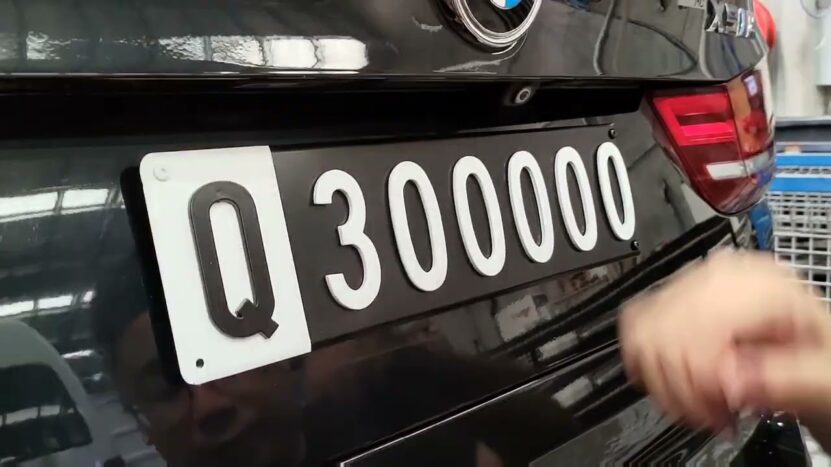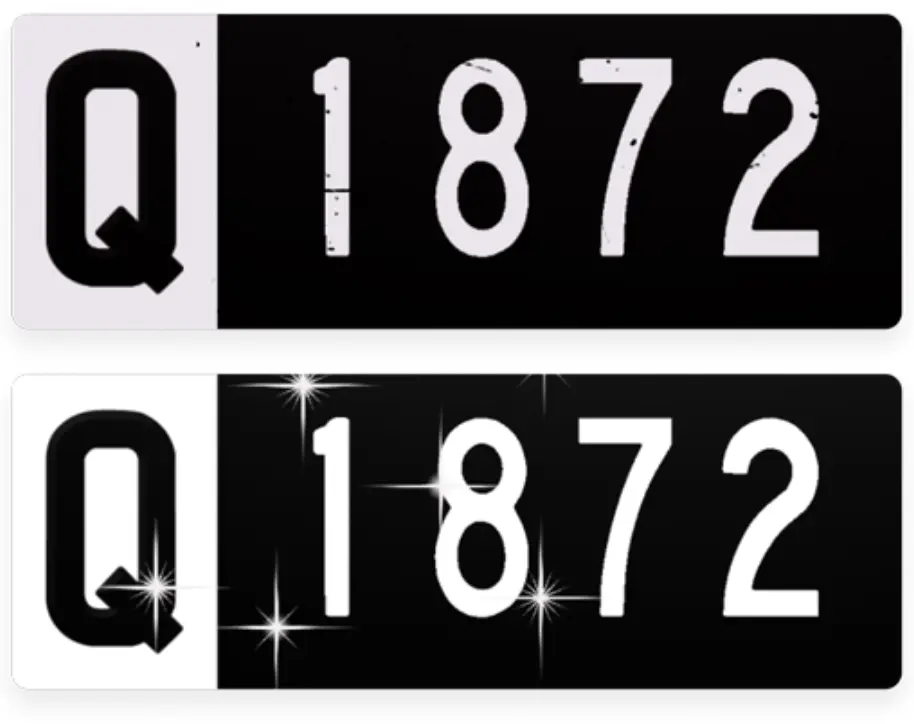In many countries, vehicle registration plates are required for identification and tracking. These plates usually consist of numbers and letters unique to each vehicle. Q Plates are a distinct category, used for particular circumstances. Understanding the purpose and requirements of these plates is essential for compliance. Misusing or misrepresenting the use of Q Plates can lead to serious legal consequences.
However, there are cases where vehicles need to fit into the standard registration categories. This is where Q Plate Cars come into play. They provide a solution for non-standard vehicles, allowing them to be properly registered and recognized. This caters to unique needs without compromising regulatory oversight. Proper use of Q Plates ensures a cohesive and legal road system.
Purpose of Q Plates

Q Plates are typically used for vehicles modified or customized significantly or with unclear ownership or origin. These special registration plates help to differentiate and track these unique vehicles in the traffic system. The designation aids in legal compliance, regulation enforcement, and potential resale considerations. It forms a crucial part of the broader vehicle registration system, ensuring that exceptions are handled transparently. The misuse or misrepresentation of Q Plates can have serious legal ramifications.
Issuing of Q Plates
The issuance of Q Plates is usually done by the motor vehicle registration authorities in each country or region. The specific regulations and requirements for obtaining a Q Plate may vary but generally involve a thorough inspection of the vehicle and documentation to assess its eligibility for this type of registration.
Applicants must comply with all guidelines and provide accurate information to successfully register their vehicles with Q Plates. The process ensures that only qualified vehicles receive this designation. Inaccurate or false information can result in denial, fines, or other penalties.
Modified or Customized Vehicles
In the UK, kit cars are required for Q-plate registration. It is advisable in Northern Ireland to consult experts in Q plate car insurance, which you may easily find through insurance-related websites. These experts are your go-to person regarding Q plate modifications and vehicle customization in acquiring insurance.
These modifications can range from aesthetic enhancements such as body kits, spoilers, or paint jobs, to performance upgrades such as engine modifications, exhaust systems, or suspension modifications.
The Q Plate serves as a visible indicator that the vehicle has been modified beyond the standard factory specifications.
Vehicles with Unclear Ownership of Origin

Vehicles may sometimes be assigned a Q Plate if their ownership or origin needs clarification. This could happen if a car has been imported from another country without proper documentation or changed hands multiple times without appropriate record-keeping.
Assigning a Q Plate to such a vehicle helps authorities keep track of its movement and ownership history.
Benefits of Q Plates
Having a Q Plate can offer several benefits to both vehicle owners and authorities:
- Identification: Q Plates allow for easy identification of modified or customized vehicles. This can be helpful for law enforcement agencies when dealing with traffic violations or tracking stolen cars.
- Flexibility for Modifications: A vehicle with a Q Plate signifies that it has undergone modifications. This can provide more flexibility for further customization and changes in the future, as the car is already registered with a non-standard plate.
- Showcasing Customization: Q Plates can be a source of pride for owners of customized vehicles. Displaying a unique registration plate can help them showcase their creativity and passion for customization.
- Tracking and Monitoring: Q Plates enable authorities to keep track of vehicles that fall outside the standard registration categories. This can be useful for monitoring and managing traffic flow, conducting statistical analysis, and ensuring compliance with regulations.
Requirements for Q Plates
The requirements for obtaining a Q Plate may vary between regions or countries. However, there are generally some common criteria that need to be met, such as:
- Vehicle Inspection: The vehicle must undergo a thorough inspection to ensure its roadworthiness and compliance with safety and emission standards.
- Documentation: As part of the registration process, the owner needs to provide relevant documentation, which may include proof of modification, import documentation, or ownership history.
- Payment of Fees: A fee is usually associated with obtaining a Q Plate. The amount varies depending on the region and specific requirements.
Vehicle owners need to familiarize themselves with the regulations and requirements in their jurisdiction to ensure a smooth and compliant registration process.
Displaying Q Plates

Once a vehicle has been assigned a Q Plate, it is essential to display it correctly. The guidelines for displaying the Q Plate may vary, but generally, they should be clearly and prominently displayed on both the front and rear of the vehicle. This allows for easy identification by authorities and other road users. Failure to display the Q Plate properly may result in fines or other penalties. Understanding and following the correct procedures for displaying Q Plates is crucial for compliance with local regulations. Vehicle owners must refer to specific regional guidelines to ensure they adhere to all legal requirements.
Restrictions and Penalties for Misuse of Q Plates
The regulation of Q Plates is not only about proper issuance but also involves ensuring that they are used appropriately. Misusing or forging Q Plates is considered a serious offense in many jurisdictions, and it can lead to substantial fines, penalties, or even criminal charges. The proper use of Q Plates ensures that the vehicle meets specific criteria related to modifications or ownership uncertainties, and improper use undermines the integrity of the system.
Enforcement agencies regularly monitor the usage of Q Plates and have the authority to conduct inspections to verify compliance. If found in violation of the stipulated guidelines, the vehicle owner may face sanctions that include the revocation of the plate, fines, or other legal consequences. Awareness of these restrictions and penalties is crucial for vehicle owners and operators to maintain adherence to the law and avoid unnecessary legal complications.
Final Thoughts
Q Plate Cars are special registration plates used for vehicles that do not fit the standard registration categories. Whether a modified or customized vehicle or a vehicle with unclear ownership or origin, having a Q Plate provides identification and flexibility for modifications.
It helps authorities track and monitor these unique vehicles. The requirements and regulations for obtaining and displaying Q Plates may vary, so vehicle owners must consult their local motor vehicle registration authority for accurate and up-to-date information. Q Plate Cars not only stand out on the road but also serve as a symbol of individuality and passion for customization.

